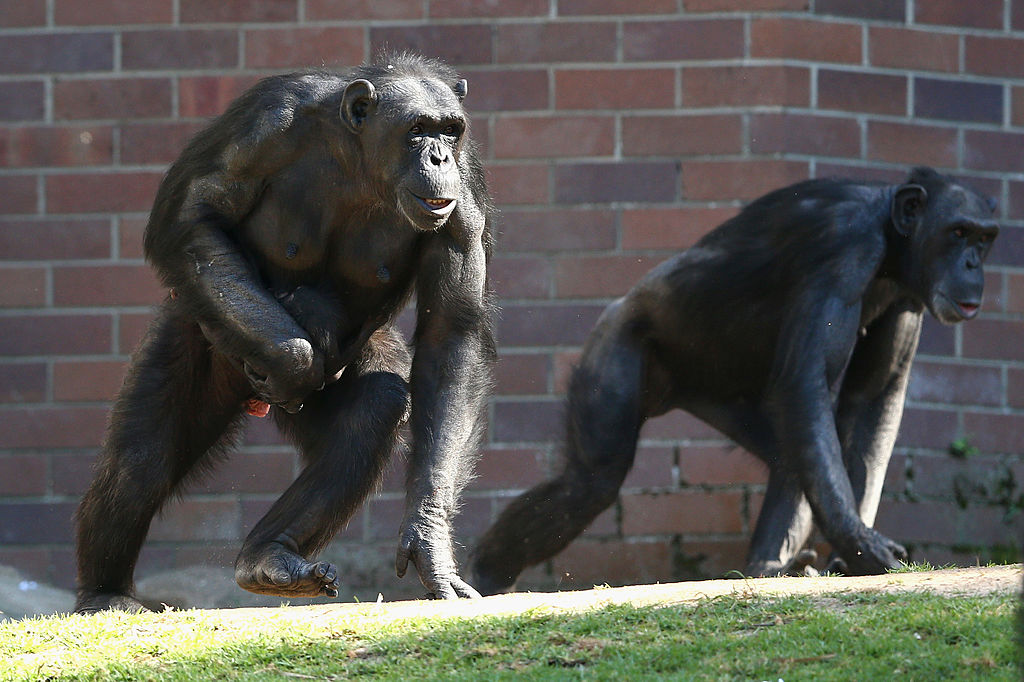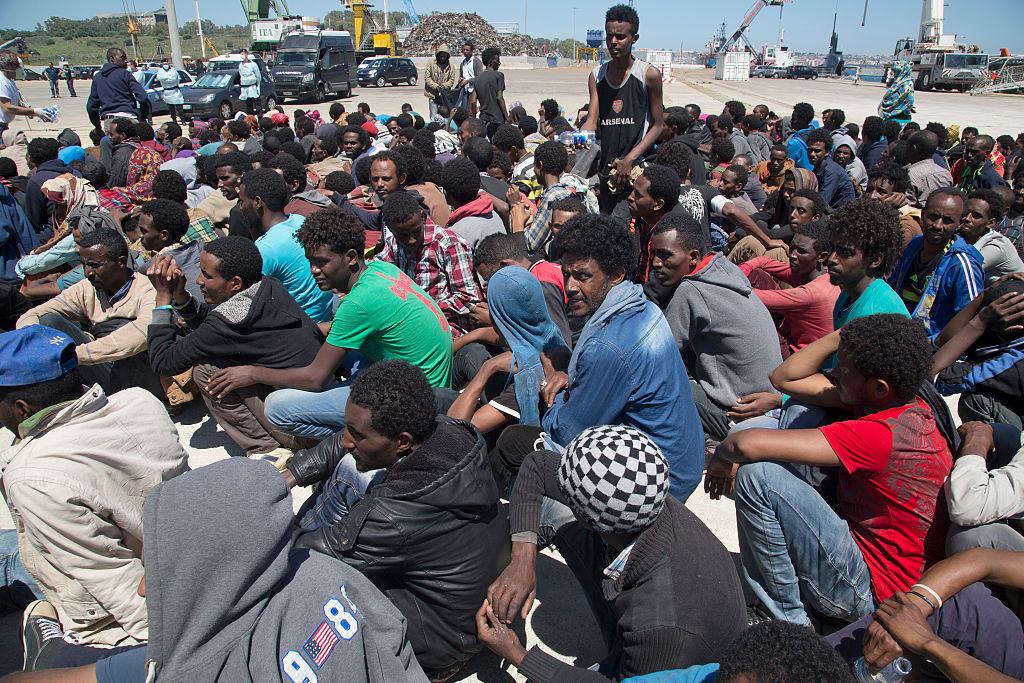In the years after the Brexit vote, Britain’s Europhile establishment loved to complain about the damage this break with liberal internationalism was supposedly doing to our reputation abroad.
Today, however, as Europe swings Right and Donald Trump returns to the White House, Britain’s social-democratic Labour government now stands as an outlier to the Left. Prime minister Sir Keir Starmer’s approval is tanking in record time as he doggedly pursues various unpopular left-wing crusades: going to war with farmers, massively raising taxes and continuing to deliver punishing eco-austerity, to name but three.
But what has really come to define Starmer’s Britain, at home and abroad, is its censorious approach to speech.
This summer, the barbarous killing of three young girls by a man of migrant background sparked widespread civil unrest. The shocking attack soon became a lightning rod for many long-held grievances – especially about migration and crime – but Starmer blamed social media for the riots and effected a brutal crackdown. In the months since, the result has been a steady drumbeat of grandmothers, carers and veterans being sentenced to lengthy, punitive prison sentences for things said online.
Many see this as draconian and deeply unfair, especially at a time when Starmer was releasing thousands of career criminals to free up space in our crowded prisons. And Britain’s unfreedom of speech was spotlighted again this month after Allison Pearson, a prominent conservative journalist, was visited by police at her home over a year-old tweet.
Brexit may well have raised eyebrows from globalist-minded European neighbours – but today, the British state’s zeal for censorship is not just a bad look for the country of Magna Carta. It is also setting us on a collision course with the world’s richest man and most powerful free-speech crusader, Elon Musk.
The billionaire CEO of Tesla is now a close ally of Donald Trump, having been tapped to lead his administration’s Department of Government Efficiency. He is also the owner of X (formerly Twitter), the social media platform he has pledged to make the world’s “digital public square” where he posts regularly to his some 200 million followers. Since the riots, this has included a constant flow of negative commentary on the Starmer government, only this weekend calling Britain a “police state”.
Now, the UK parliament is attempting to summon Musk to appear before its science and technology committee for a dressing down over X’s alleged role in the riots.
Not only does this confirm Musk in his beliefs about Britain’s growing authoritarianism, it will also only worsen an already negative perception of Starmer’s Britain within the Trump team. During the election campaign, a row about Labour Party activists campaigning for the Democrats prompted the Trump campaign to cry “foreign interference” and deride Labour as “far-left”. It doesn’t help that the Labour MP leading the committee, Chi Onwurah, attended the Democratic National Convention. Vice president-elect JD Vance, meanwhile, has repeatedly said that owing to Britain’s large Muslim population and the penchant of politicians like Starmer for indulging Muslim sectarianism, Britain is set to become the world’s first “Islamist” nuclear power.
Nor have Labour endeared themselves to Musk personally. In September, the UK government snubbed Musk by declining to invite the billionaire to an investment summit. Last month, it emerged that an internet censorship lobby group with ties to Keir Starmer’s chief of staff has for years been trying to “kill” Musk’s Twitter, part of a wider network which the writer Michael Shellenberger calls the “censorship-industrial complex” which has been targeting X’s advertising revenue.
In short, the committee stage is set for fireworks. One only has to consider the last time Elon Musk went toe-to-toe with an overzealous UK establishment liberal. In a viral sit-down interview with the BBC last year, US technology reporter James Clayton attempted to grill Musk about an alleged rise in hate speech on X since his takeover, but succeeded only in revealing the state-funded broadcaster’s pro-censorship biases. Musk flipped the script, asking what Clayton meant by “hate speech” and who ought to have the power define it – questions Clayton proved unable to answer. Worse, while maintaining that there had been a significant increase in hate speech under Musk’s tenure, Clayton was forced to admit he hadn’t seen any personally. “You just lied”, Musk ended up berating the flabbergasted BBC man, “you said there was hate speech but you couldn’t name a single example”. This testy exchange took place before Musk started taking an interest in free-speech problems in Britain. Parliamentarians expecting to subject him to a righteous grilling fail to realise they would in fact be giving him a soap box – not that he needs one – to opine about free speech.
Yet whether Musk ends up appearing at this committee or not – it is a summons he has so far brushed off – this is just the opening salvo in the British state’s coming war on X. The inquiry Musk is being summoned to is already mulling how to further police “false and harmful content” online, after home secretary Yvette Coooper opened the door to making the law even more stringent over the summer.
Meanwhile, Ofcom, the broadcast regulator, is positively itching to go after Musk with its freshly minted powers from last year’s Online Safety Act. Ofcom’s official position is already that the riots this summer were caused by disinformation and it has been beefing up its team. In July, it had a total of 466 employees dedicated to “online safety” – more than three times the 123 officials employed under the EU’s equivalent Digital Services Act – and it is set to add nearly a hundred more by March. Ofcom will also soon establish its statutory “Advisory Committee on Misinformation and Disinformation”, comprising “persons with expertise in the prevention and handling of disinformation and misinformation online” who will advise the UK government on how to police the internet most effectively. (When this is finally announced and inevitably comes to wider attention, expect it to be widely derided as an Orwellian Ministry of Truth, probably by Musk himself.)
The politically savvy move would be for Starmer to try and avoid locking horns with the outspoken billionaire and friend of the President by trying to rein in Ofcom. This wouldn’t be impossible had he the will: Trump, for instance, has nominated a free-speech advocate Brendan Carr to lead the Federal Communications Commission, America’s equivalent of Ofcom, and he has boldly pledged to “dismantle the censorship cartel”. But Ofcom is one of the many quangos created by Tony Blair, the last Labour PM before Starmer to win an election, and the unimpeachable “independence” of these Blair-era bodies is a keystone of Starmer’s technocratic ideology. Even if Ofcom taking a harsh stance against X damaged Starmer diplomatically, it would be difficult for him to do much about it.
Of course, that would be to assume he wanted to in the first place. But Starmer’s Labour is still deeply wedded to state multiculturalism, and since this summer’s riots were a painful indication that something is rotten in the state of “diverse modern Britain”, they need some kind of scapegoat. The hysterical two-weeks’ hate against Musk this summer has proven he fits the bill. For many leftist elites, as I wrote here then, “it is comforting to imagine that growing public discontent in their societies is the result not of their own disastrous policies, but of free speech on platforms such as X”. Starmer is only getting more unpopular, and with X already pivoting away from the Left, the government and its outriders will be out for blood.
Think Labour’s war with Elon Musk’s war is bad now? Things can only get worse.





The party was great, but expect vengeance from the people Trump defeated